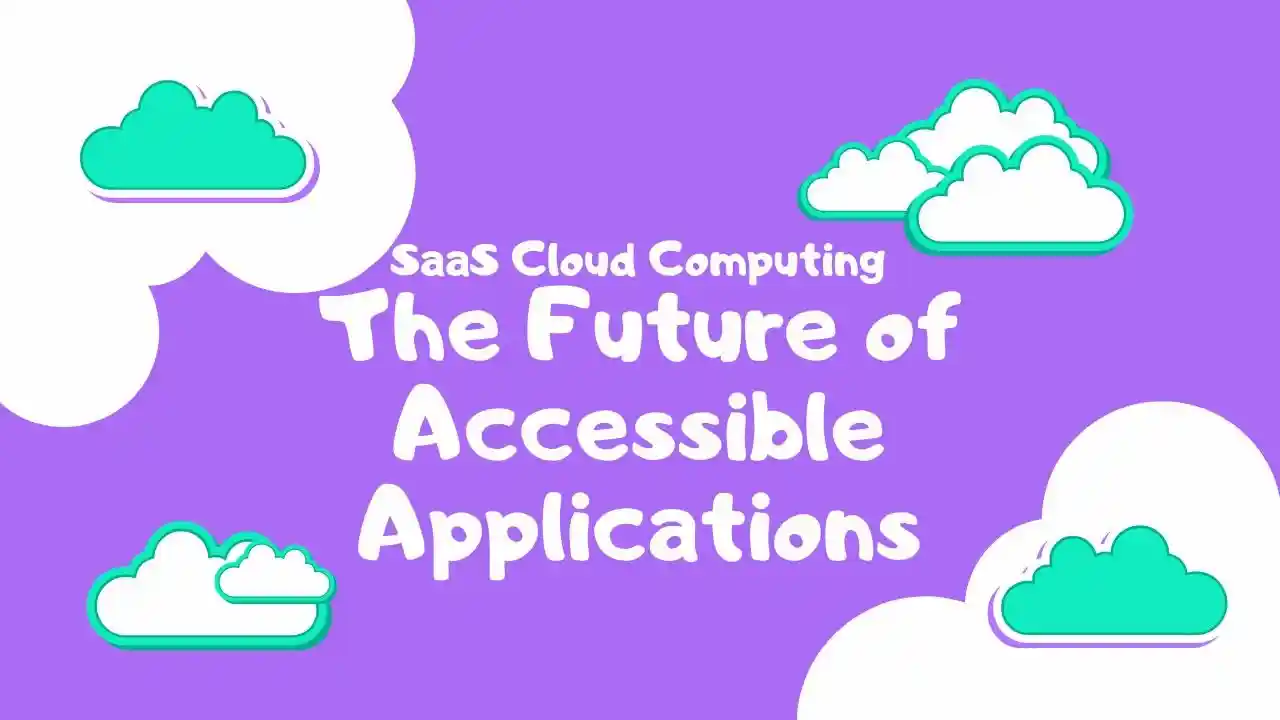Ethics in Cloud Computing: Navigating the Moral Landscape
Jan 07, 2025 - Cloud Computing

The rise of SaaS (Software as a Service) has redefined how businesses and individuals interact with software. SaaS cloud computing, which enables users to access software applications online, offers a world of benefits from cost savings to scalability and accessibility. No longer tied to local installs or complex setups, companies and individuals can leverage powerful software directly through their browsers. Let’s dive into the nuances of SaaS and explore how it’s shaping modern digital operations for organizations around the globe.
At its core, SaaS cloud computing is a model where software applications are hosted by a third-party provider and made available to users over the internet. This eliminates the need for companies to install and run applications on their own systems, as everything from data management to updates is handled by the provider. SaaS is part of the broader cloud computing definition, sitting alongside other models like IaaS and PaaS.
Cost-Efficiency and Savings
SaaS platforms operate on a subscription basis, so companies avoid the substantial upfront costs associated with traditional software licenses. Additionally, updates and maintenance are handled by the SaaS provider, reducing IT costs.
Scalability and Flexibility
SaaS solutions are highly scalable, making them a go-to choice for growing businesses. Companies can adjust their subscriptions to include additional users or features, allowing them to scale operations without major infrastructure changes.
Access to the Latest Software and Features
SaaS providers manage upgrades and add features continuously, meaning users have access to the latest technology without the need for manual updates. This ensures software remains functional, secure, and compatible with industry standards.
Enhanced Collaboration
With SaaS cloud computing, employees and teams can access software from anywhere with internet access, facilitating seamless collaboration. For instance, SaaS applications are widely used for cloud migration and project management, where team members often work remotely.
High Security Standards
Security is a top priority for most SaaS providers. As sensitive data is stored on secure servers, providers implement robust measures to protect user data, including encryption, regular backups, and compliance with security standards. For more on cloud security practices, see cloud security essentials.
SaaS is prevalent across industries and can serve various functions:
CRM (Customer Relationship Management): Software like Salesforce and HubSpot allows businesses to manage customer interactions, track leads, and monitor sales performance, all through the cloud.
Human Resources: HR software, such as BambooHR, helps businesses manage payroll, benefits, and employee information in one centralized system.
Project Management: Tools like Asana and Monday streamline project tracking and team collaboration, especially useful for remote work.
These applications illustrate how SaaS platforms integrate across departments, improving productivity and centralizing data management.
While SaaS stands out as a fully managed solution for end-users, it’s helpful to understand how it differs from PaaS and IaaS:
IaaS (Infrastructure as a Service): With IaaS, companies rent computing resources, allowing them to build their environments from scratch. See more in our IaaS guide.
PaaS (Platform as a Service): PaaS provides a platform for developers to build applications without managing the infrastructure. It’s ideal for app development projects; learn more about PaaS cloud computing.
SaaS is an all-in-one solution suitable for general end-users, while PaaS and IaaS cater more to developers and IT departments seeking customization and control.
Despite its advantages, SaaS cloud computing has a few limitations:
Data Privacy Concerns: Organizations may feel uneasy about storing sensitive information off-site. Ensuring that your SaaS provider complies with industry regulations and offers encryption is essential.
Dependence on Internet Connectivity: SaaS relies on internet access. Without a stable connection, accessing the software can be challenging, especially for businesses in regions with unreliable connectivity.
SaaS cloud computing has opened up new possibilities for businesses of all sizes, offering scalable, flexible, and cost-effective software solutions. By outsourcing software hosting and maintenance, companies gain access to high-quality applications without the burden of managing infrastructure.
For businesses ready to take advantage of the latest in software technology, SaaS represents a practical, forward-thinking approach. With SaaS, companies can streamline operations, reduce costs, and position themselves for continued growth in a rapidly evolving digital world.
Copyright © 2026 ByteTechBlog By infyable.com. All Right Reserved.